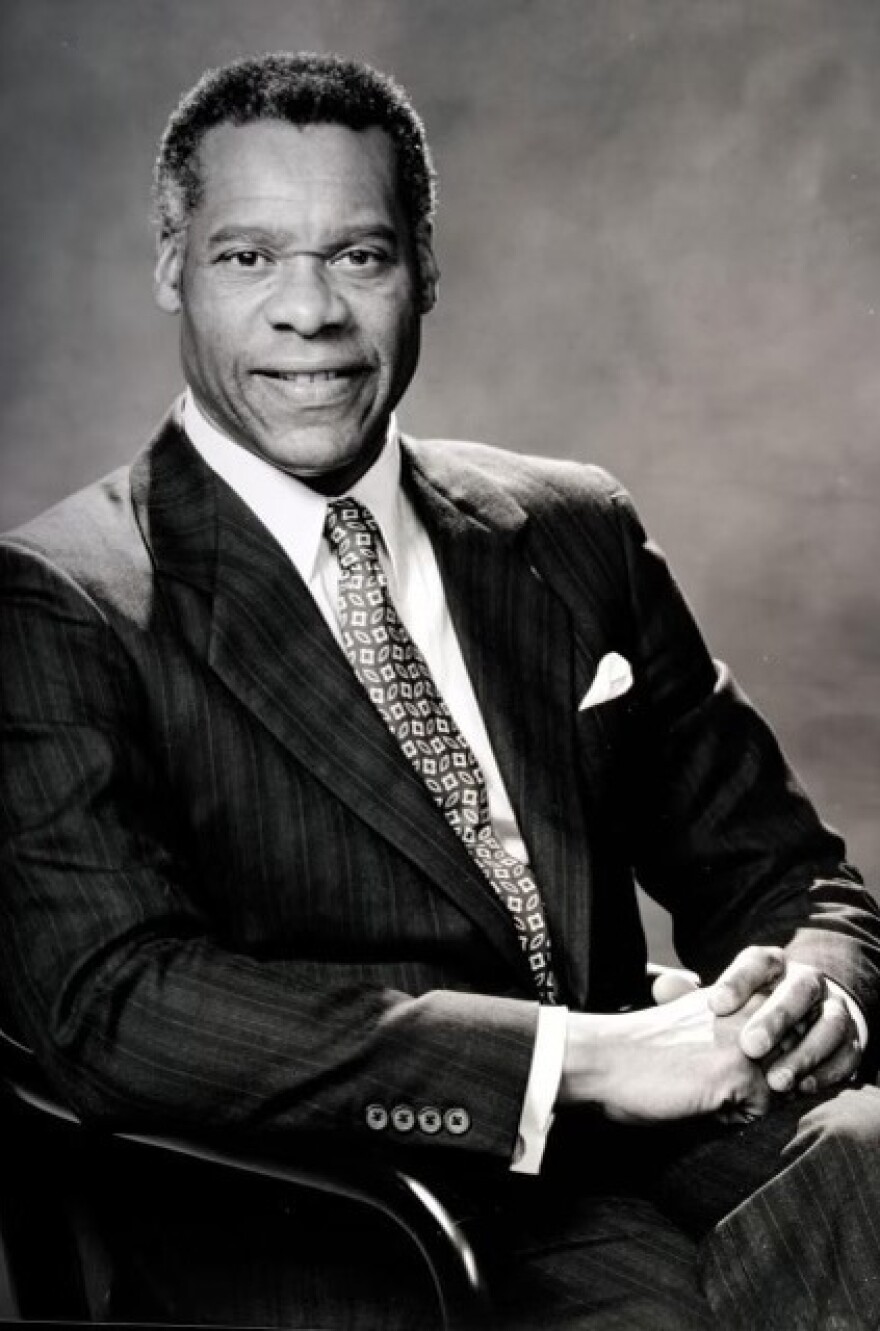Delano Lewis, a former president of National Public Radio and U.S. ambassador to South Africa, is dead at 84.
He died on Wednesday while in hospice care in Las Cruces, N.M.,
Lewis was named president of 91���� in 1993, becoming the first Black person to take the role. He came to the job with a long resume, including many leadership positions within Washington, D.C.'s politics and business circles.
Born in 1938 in Arkansas City, Kan., Lewis grew up in a segregated community, and became interested in civil rights law at a young age, according to the Bulletin. After graduating law school from the Washburn University School of Law in Topeka in 1963, he eventually took positions at the Justice Department and Equal Employment Opportunity Commission.
Thus began a long career in Washington. He became associate director and country director for the Peace Corps in Nigeria and Uganda from 1966 to 1969, then became a legislative assistant to U.S. Sen. Edward Brooke, the first Black man elected to the Senate, and Rep. Walter Fauntroy, a non-voting delegate to the District of Columbia.
A few years later, Lewis was part of the charge to give D.C. more autonomy, and helped usher the Home Rule Act through Congress, which established a local legislative council to be chosen by the district's residents. Soon after, Lewis ran for city council, his one and only bid for public office, but lost to future D.C. Mayor Marion Barry. When Barry won the mayoral race in 1978, however, Lewis led the transition team.
His influence in Washington extended into business, too; he became CEO of the Chesapeake & Potomac Telephone Company in 1990, having worked at the company for over a decade. Later, when he started his tenure as president of 91����, he told All Things Considered that he was drawn to the new challenges that leading public radio provided.
[I've] been in government for 10 years, and C&P Telephone [and] the business world for 20. I just really felt a new challenge was in order, he said.
While at 91����, he helped advocate against the elimination of public broadcasting funds. He also tried to merge the organization with one of its greatest competitors — Public Radio International — but backed off when the boards of both companies balked at the prospect.
He was both accused of, and credited with, bringing a business sensibility to public radio, as 91���� reporter Brooke Gladstone put it when he departed the organization in 1998, five years after he started.

Lewis planned to retire after he left 91����. It's a personal decision that I'm going to pursue fun things in life, he told staff when he announced his departure. Retirement didn't last long, though. According to his 2019 autobiography, No Condition Is Permanent: A Collection of Memories, Lewis got a call from Vice President Al Gore while packing to move to Las Cruces for retirement. President Bill Clinton had nominated him to be the next ambassador to the Republic of South Africa, a position that he accepted and then held from 1999 to 2001.
In a statement, current 91���� CEO John Lansing praised Lewis' remarkable career of public service.
A loyal 91���� listener and supporter of public radio, he joked about the lengthy process to become head of 91���� saying: 'I never worked so hard for a pay cut in my life.' The 91���� and public radio family join his family and friends, who will miss him dearly, Lansing said.
Copyright 2023 91����. To see more, visit https://www.npr.org.




